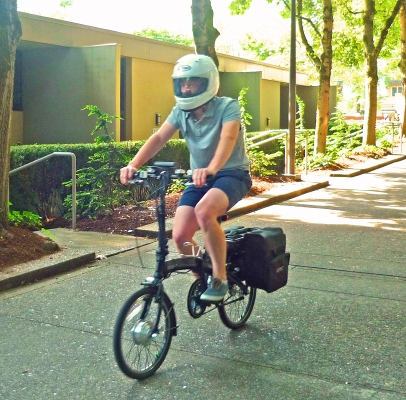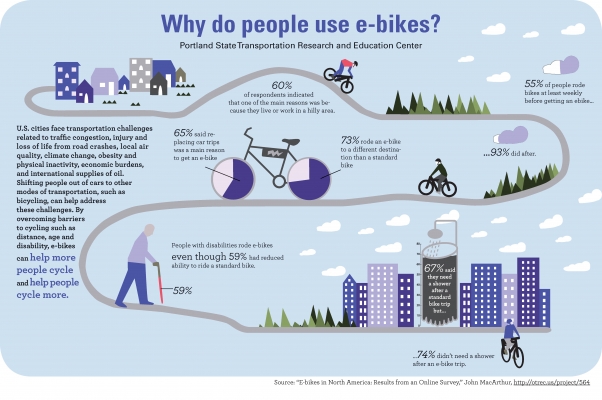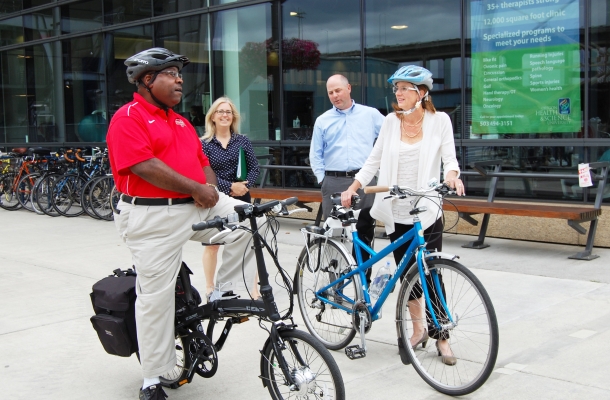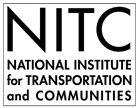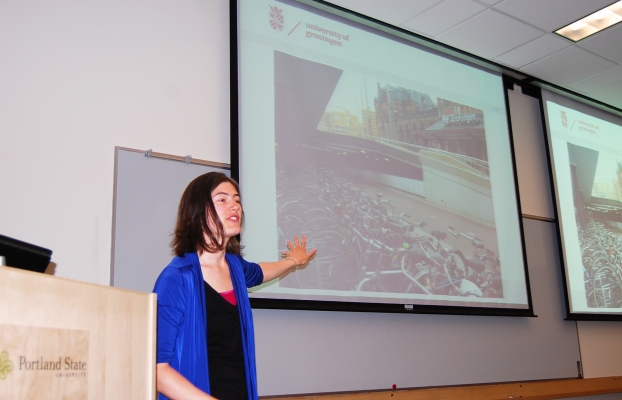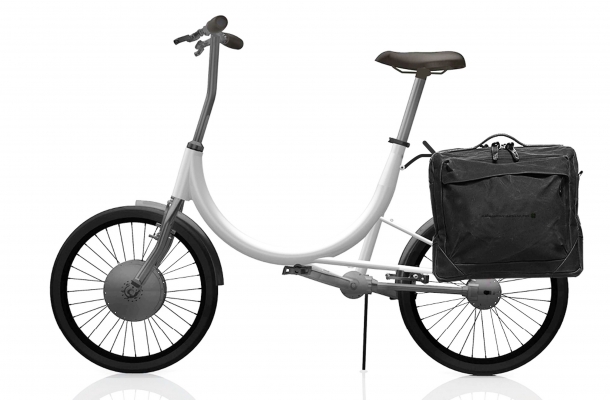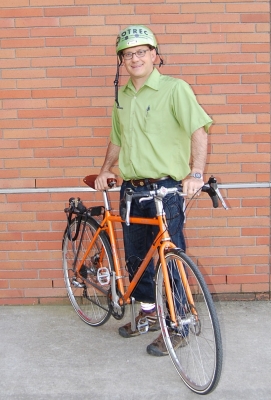Evaluation of Electric Bike Use at Three Kaiser Permanente NW Employment Centers in Portland Metro Region
John MacArthur, Portland State University; Jennifer Dill, Portland State University
Despite efforts to get more people biking, North America still has low ridership numbers. The problem? Biking is hard.
A new report by John MacArthur of Portland State University's Transportation Research and Education Center (TREC), funded by the National Institute for Transportation and Communtiies, offers a solution to that problem: e-bikes.
Many people surveyed say that having to pedal up hills and arriving at their destination sweaty are major deterrents to commuting by bike, even when bike lanes and other facilities are there.
Researchers have put a lot of thought into ways to get more people riding bicycles by improving bicycle infrastructure, land use and public engagement. The efforts are largely due to concerns about congestion, climate change and public health. Comparatively little research, however, has focused on the bicycle itself.
MacArthur and co-investigator...
Read more

